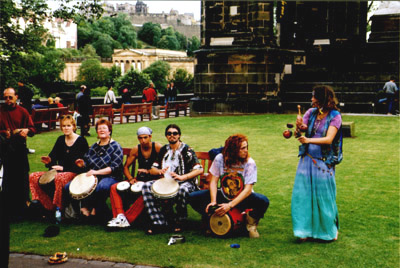
Here's a 4-5 paragraph summary of the provided Wikipedia article on arts festivals, formatted with Markdown:
What are Arts Festivals?
Arts festivals are diverse events that celebrate a wide array of artistic expressions. Unlike festivals centered on a single art form (like purely visual art festivals or music-only festivals), arts festivals encompass a broad spectrum, potentially including music, dance, film, fine art (painting, sculpture, etc.), literature, poetry, and more. They often feature a curated program with individual events spanning various genres, managed by an artistic director. These events can range in duration from a single day to a month, offering a variety of experiences like comedy shows, children's entertainment, science exhibits, and street theater. A key distinction is made between curated arts festivals and "fringe" festivals, which are typically open-access, allowing a wider range of performers to participate. The open access makes Art festivals very distinct from "greenfield festivals" (like Glastonbury), which are primarily music-focused, camping events.
A Brief History and Examples
The article highlights the historical roots of arts festivals, citing the Three Choirs Festival (established by 1719) and the Norfolk and Norwich Festival (starting in 1772) in England as some of the oldest. It also notes the influence of the French Revolution on the development of festivals, which served both artistic and socio-political purposes, embodying ideals of liberty and equality. Prominent examples of leading arts festivals are mentioned like the Edinburgh Festival, Adelaide Festival of Arts, and the Festival d'Avignon. The article also highlights that one of the most well-recognised musical festivals ever, Woodstock, took place in 1969 and featured legends like Jimi Hendrix.
Types of Arts Festivals: A Breakdown
The summary delves into subcategories within the broader "arts festival" umbrella. Art fairs are specifically focused on visual art, providing a platform for artists, dealers, and collectors to interact and transact. Theater festivals trace their origins back to ancient Greece, showcasing dramatic performances and competitions. Film festivals offer filmmakers exposure and recognition, often featuring both full-length and short films, with the Sundance Film Festival highlighted as a major example. Finally, poetry festivals are dedicated to celebrating contemporary poetry, providing a space for poets to connect, share their work, and engage in discussions about the art form.
Key Distinctions and Characteristics
A crucial point emphasized is the difference between arts festivals (curated, multi-genre) and art fairs (commercial, visual art-focused). While art fairs are market-driven, major arts festival exhibitions, like the Venice Biennale, are curated by invitation, emphasizing artistic merit over commercial appeal. Also, Arts festival is an umbrella term. The article clarifies these nuances, providing a well-rounded understanding of the different types of events that fall under the arts festival umbrella.